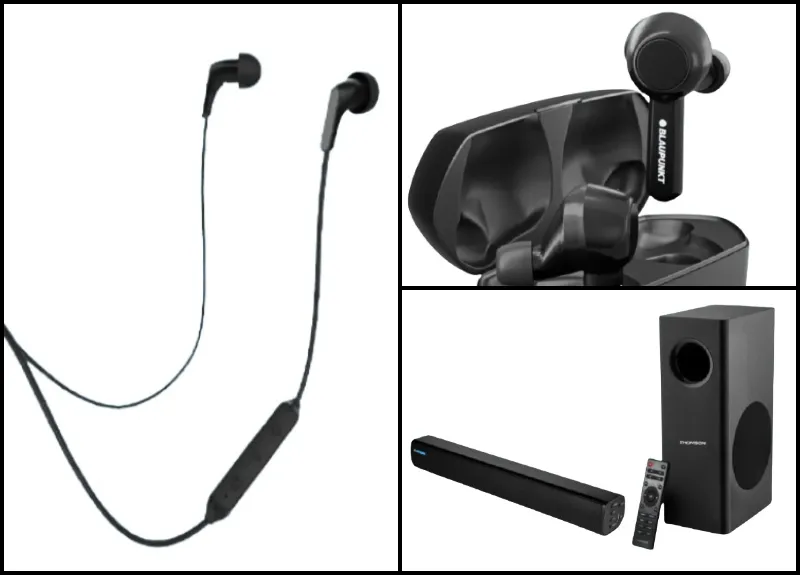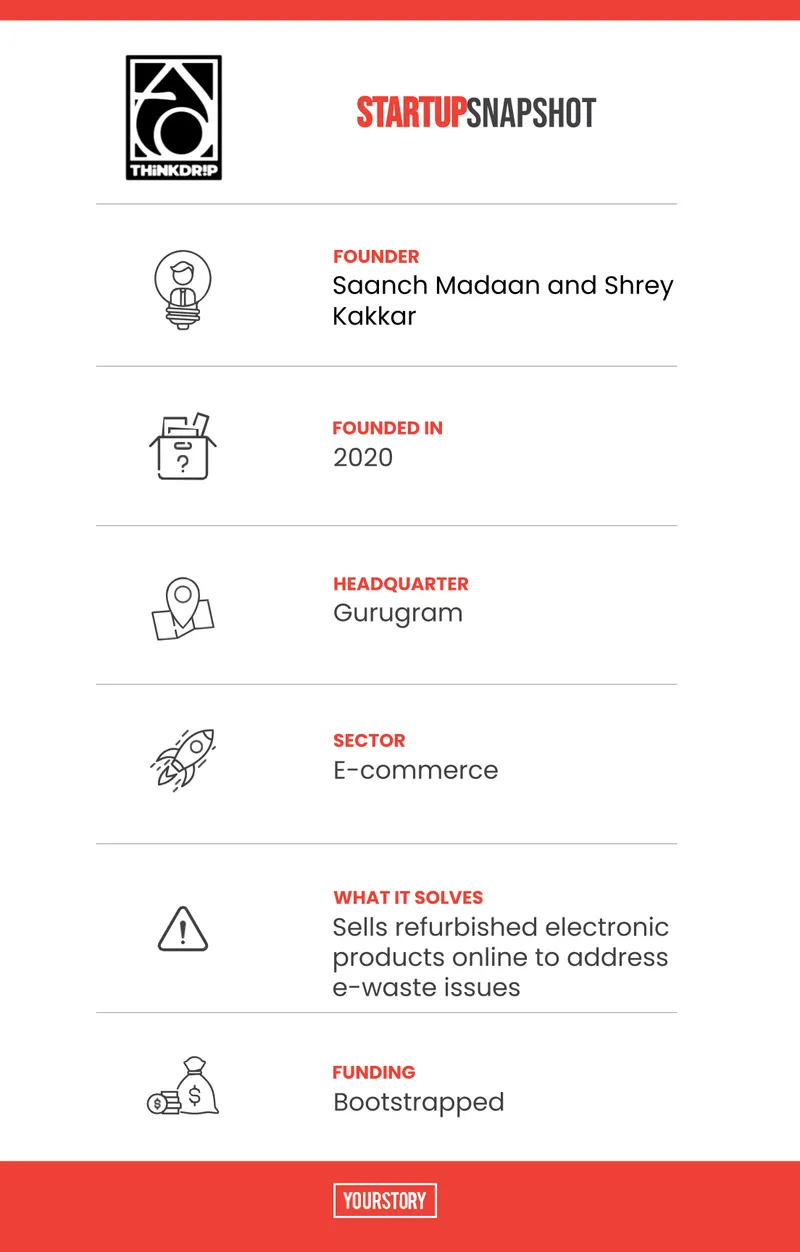These student entrepreneurs are trying to solve the e-waste problem by selling refurbished electronics
Student entrepreneurs Saanch Madaan and Shrey Kakkar launched Thinkdrip last year to refurbish and sell electronics at competitive prices to solve the e-waste problem in India.
India produced over 3.23 million metric tonnes of e-waste in 2019, making it reportedly the world’s third-biggest e-waste generator after China and the US. According to a report by ASSOCHAM, India is estimated to contribute five million tonnes of e-waste by 2021.
Students entrepreneurs Saanch Madaan and Shrey Kakkar, studying in Class 11 and 12, respectively, are looking to solve this problem through Gurugram-based .
It is an ecommerce startup that sells refurbished electronic products such as earphones, Bluetooth speakers, and keyboards, among others, to address the problem of e-waste.
According to the co-founders, they were always concerned about the pollution issues in the country and wanted to contribute in some way. In 2019, they decided to sell sustainable school bags. However, by the time they could finalise the products, COVID-19 hit the world. Hence, last year, they pivoted their model to sell refurbished electronics.
“Around March 2020 when COVID-19 hit us, we were finalising our products, but we realised that the demand would decrease because the schools were shut down. We had to think of something new as we were still passionate about doing something and making an impact. That is when we came up with the idea of refurbishing electronics,” Saanch tells YourStory

Products available on Thinkdrip website [Image Credit: Thinkdrip]
Refurbishing electronics to fight e-waste
The idea for refurbished electronics came to them after Shrey found his mother returning a headset because of incorrect delivery. He realised that the headset, plastics, packaging, etc., would end up as waste.
Shrey explains that users might return electronics such as earphones, speakers, etc., for minor scratches or wrong products. Apart from this, it is also more viable for users to discard electronics such as earphones in case of any minor problem as buying a new one might be more cost-effective than repairing the old one. These discarded electronics lead to growing levels of electronic waste.
In order to solve this problem, the co-founders reached out to electronics brands such as Blaupunkt, Envent, and Thomson, among others, to get their returned electronics products such as wireless earphones, Bluetooth speakers, telecom, and IT accessories, refurbish them, and sell them online through their official website and social media handles at competitive prices.
“We step up as a third-party and collect the returned electronics from the brand from their warehouse and work in partnership with mechanics to refurbish them. We now have our own warehouses in Delhi and Bengaluru,” Shrey says.
Saanch adds that the startup has also partnered with Shiprocket for packaging and dispatching of the products across India.
The duo aims to remove the stigma around the use of refurbished or second-hand goods and make the market aware of the benefits.
The co-founders also explain they are working to minimise the use of excessive packaging materials, especially plastics, which can contribute to the increasing pollution levels.

Illustration: YS Design
Business and more
Thinkdrip purchases returned products from brands, refurbishes them, and sells them on its platform.
“For example, we buy the product from Blaupunkt at Rs 500 and sell it at Rs 1,000 from our website. Fifty percent of the cost price i.e. Rs 250 is paid for refurbishing and packaging while 25 percent of the cost price is used for marketing and logistics. The money remaining is the revenue earned by Thinkdrip. The percentage difference between the new product sold by Blaupunkt on their website vs. the refurbished product sold on our website would be somewhere around 25-45 percent. Therefore, the cost on Blaupunkt would be Rs 1,250 and Rs 1,000 on our website,” Saanch says.
She claims that the bootstrapped startup clocks in about 100 orders per month. However, she also talks about the problem of ‘abandoned carts’.
She explains that the startup is also recording an equal amount of abandoned carts on the website where users might be adding items to their cart but not completing the purchase. Thus, while people are landing on the webpage, they are not making the purchase
Going forward, Thinkdrip is also looking to expand its product offering from electronics to include other refurbished products such as apparel, which is also discarded regularly and can contribute to the rising pollution levels.
The refurbished market in India is slowly picking up interest, especially among the ecommerce players. The startup competes with other ecommerce players such as Flipkart and Amazon that also offer refurbished products.
“We are trying to create the whole cycle to make sure that nothing is wasted in the process. We realise that though we are selling refurbished goods, even those can be returned. We do want to eventually work with brands who can take these products and then recycle them and use them in any way they can,” Saanch adds.
Speaking about future plans, the co-founders explain that it is also looking to onboard other brands such as boAt in the future.
YourStory’s flagship startup-tech and leadership conference will return virtually for its 13th edition on October 25-30, 2021. Sign up for updates on TechSparks or to express your interest in partnerships and speaker opportunities here.
For more on TechSparks 2021, click here.
Edited by Megha Reddy









